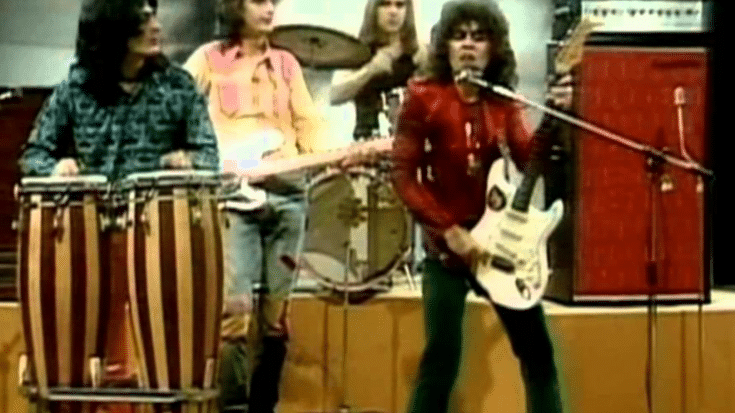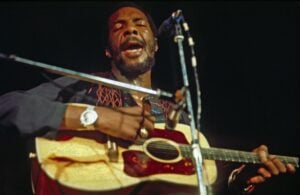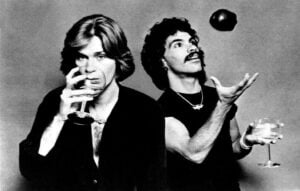8 Classic Rock Bands From The 70s That Faded Too Soon

via Louis De Nennie / YouTube
The 1970s was a golden era for rock music, with many bands rising to fame. However, not all of these bands managed to sustain their success. Here, we look back at eight classic rock bands from the 70s that, despite their potential, disappeared from the spotlight too soon.
1. Badfinger
Badfinger was a British rock band that showed great promise in the late 1960s and early 1970s. They were one of the first groups signed to The Beatles’ Apple Records and delivered hits like “Come and Get It” and “No Matter What.” Their music was marked by catchy melodies and strong harmonies, making them a favorite among fans and critics.
However, the band’s career was plagued by mismanagement and financial issues. Legal battles over royalties and disputes with their record label took a heavy toll on the members. Tragically, personal problems led to the untimely deaths of Pete Ham and Tom Evans, casting a shadow on the band’s legacy and halting their ascent in the rock world.
2. King Crimson
King Crimson, formed in 1968, made a significant impact with their debut album, “In the Court of the Crimson King.” Their complex compositions and experimental approach set them apart from other bands of the time. They quickly gained a dedicated following and influenced many future progressive rock artists.
Despite their creative output, King Crimson underwent numerous lineup changes that hindered their stability. The constant turnover of band members disrupted their momentum and prevented them from achieving sustained success. While they did release several more albums, the frequent shifts in personnel and musical direction eventually caused their influence to wane.
3. Mott the Hoople
Mott the Hoople broke through in the early 70s with their unique blend of rock, glam, and a bit of punk attitude. Boosted by David Bowie’s support and their hit single “All the Young Dudes,” they quickly gained commercial success. Their energetic performances and distinctive style resonated with fans and made them a standout act.
Unfortunately, internal conflicts and the pressures of stardom led to the band’s decline. Lead singer Ian Hunter’s health issues and disputes over the band’s direction caused tensions that eventually led to their breakup in 1974. Although they attempted reunions in later years, they never fully recaptured the magic of their peak era.
4. The Raspberries
The Raspberries emerged from Cleveland, Ohio, with a power-pop sound that combined rock and pop elements. Their catchy melodies and youthful energy quickly earned them a place on the charts with hits like “Go All the Way” and “I Wanna Be with You.” They were hailed as one of the leading bands of the power-pop movement of the 1970s.
Despite their initial success, The Raspberries struggled to maintain momentum. Internal disagreements and frustration with their record label’s promotional efforts led to their eventual breakup in 1975. The band’s impact was significant, but their time in the spotlight was brief, marking them as a band that faded too soon.
5. Humble Pie
Humble Pie was a British rock band that achieved significant success in the early 70s with their hard-hitting sound and powerful performances. Formed by Steve Marriott and Peter Frampton, they released several successful albums, including “Smokin’,” which enjoyed commercial and critical acclaim.
However, the band faced numerous challenges, including internal conflicts and changes in their lineup. Peter Frampton’s departure to pursue a solo career dealt a significant blow to their continuity. Although they continued to release music, they couldn’t sustain the momentum and gradually faded from the mainstream.
6. Big Star
Big Star, formed in Memphis, Tennessee, is remembered as a highly influential band despite their limited commercial success during their active years. Their albums “No. 1 Record” and “Radio City” were praised for their craftsmanship and emotional depth. Their sound influenced many alternative and indie rock bands in the decades that followed.
While critically adored, Big Star struggled with distribution problems and lackluster promotion, which hampered their ability to achieve widespread recognition. Internal strife and personal issues among band members led to their early disbandment, cutting short what many believe could have been a much longer and more illustrious career.
7. T. Rex
T. Rex, led by the charismatic Marc Bolan, was at the forefront of the glam rock movement of the early 70s. With hits like “Get It On” and “20th Century Boy,” they enjoyed significant chart success and a devoted fanbase. Marc Bolan’s flamboyant style and catchy tunes made T. Rex a prominent name in rock.
However, the band’s success was relatively short-lived. Changes in the music industry and the rise of other musical genres sidelined glam rock. Tragically, Marc Bolan’s death in a car accident in 1977 effectively ended T. Rex’s reign. Their influence remains, but their time in the limelight was fleeting.
8. Sweet
Sweet was another band that rose to prominence in the glam rock era, with hits like “Ballroom Blitz” and “Fox on the Run.” Their blend of hard rock and pop melodies made them a favorite in the early 70s. Their catchy songs and energetic performances helped them achieve international success.
Despite their popularity, the band faced numerous challenges, including management disputes and internal conflicts. As the glam rock trend faded, so did their commercial success. By the late 70s, they struggled to adapt to the changing musical landscape, leading to their eventual decline from the mainstream.





















